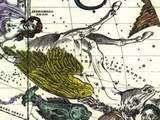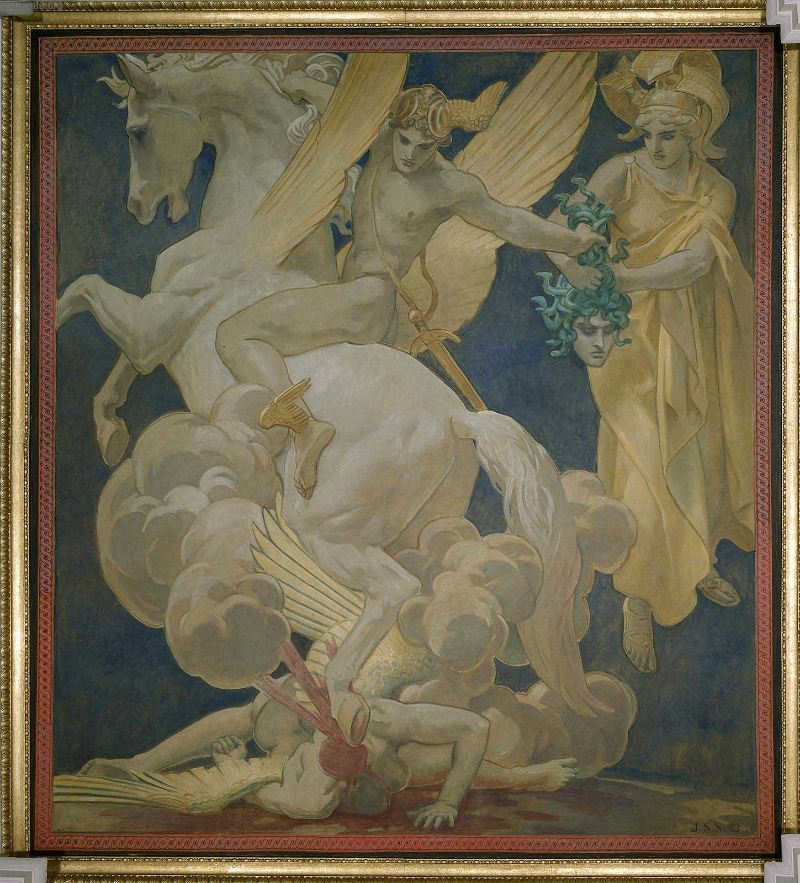Perseus
on Pegasus Slaying Medusa
John
Singer
Sargent
-- American painter
1922–25
Museum
of
Fine Arts,
Boston
Colonnade
Stairway
Side Aisle mural
Near the Rotunda
Oil on
canvas
347.98
x
317.5 cm (137
x 125 in.)
Francis
Bartlett Donation
of 1912 and Picture Fund 25.642
Jpg: MFA
(See
interactive zoom
at the MFA)
In one version of the
birth
of Pegasus
-- the flying horse -- it states the horse was miraculously formed when
the blood of Medusa's severed head poured onto the foaming sea, and out
of this foam it came. Another version said the horse came out of the
slain
body of Medusa and upon the horse was a warrior called Chrysaor, born
carrying
a golden sword.
In any event, the
tale
said that
Perseus gave the head of Medusa to the goddess Athena in gratitude for
her help and in reprisal for what Medusa
had done to her temple.
* * *
In Sargent's
depiction,
he seems
to combine the elements of the entire story -- the slaying of Medusa,
the
birth of Pegasus, and the presenting of Medusa's head to Athena all in
one. He also, very cleverly, has kept faithful to the constellation of
Pegasus.
 November
Constellation --
American
Contenant, Northern Hemisphere
Looking
South
November
Constellation --
American
Contenant, Northern Hemisphere
Looking
South
|
 Pegasus
Pegasus
|
(See Pegasus
in Juxtaposition)

Sketch
of Cellini's Perseus watercolor
Notes:

Stairway
Ceiling Decorations
Looking
straight up

Museum
of Fine Arts, Boston
|






